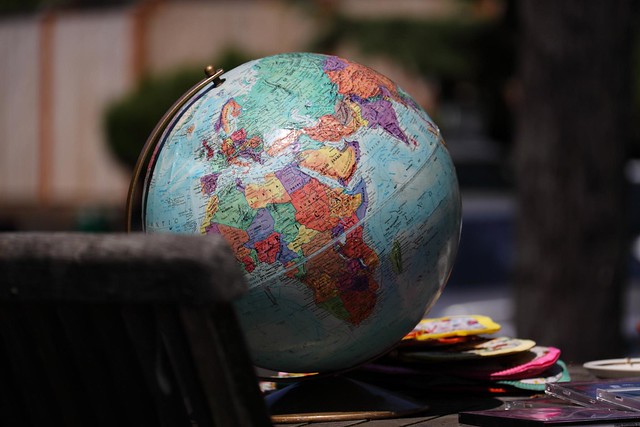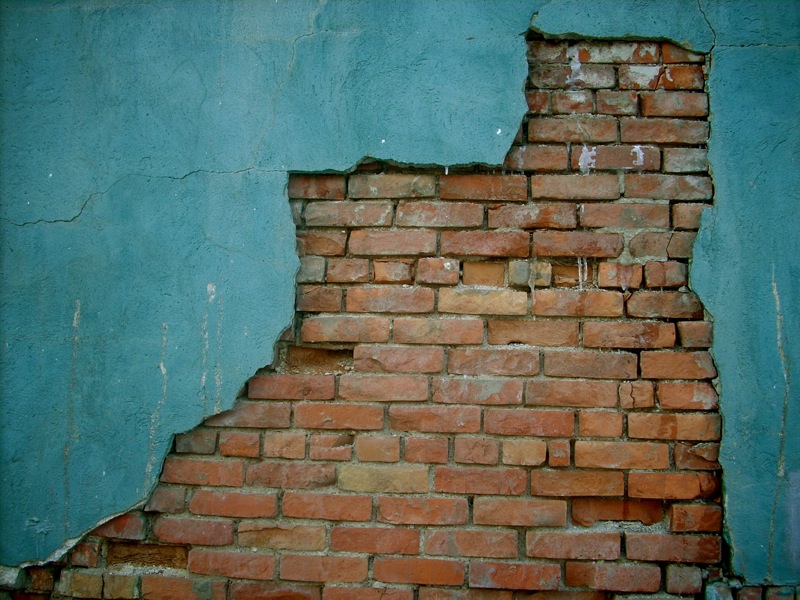
© 2009 Andrew Smith, Flickr | CC-BY-SA | via Wylio
Many things define a generation. What happens to us, around us. The culture we’re immersed in, the technology that shapes our norms and opportunities, the pulse of a society, the issues that divide and bind.
One of those issues binding us all right now is the shaky shape of the economy. The news is unavoidable. The constant ups and downs in the market has everyone from wall street to main street panicked.
It’s a time of incredible uncertainty, to be sure. A time that will mark our generation. But with that, it’s important to realize that it’s also a time of incredible opportunity.
That’s because it’s more than simply what happens passively to a generation that defines it. The actions we chose, the choices we make, set the course to define the landscape of the future.
That’s where social justice comes in. Because the facts are these: when it comes down to it, in tough times, the easy choice (the one that to be honest, most people will make) is the course of self-preservation. When money gets tight, giving gets tighter, too. It’s a trend many organizations are already bracing for.
But here’s why the issue becomes so much more pronounced: in times like these, there is also an increase in the physical needs in the world around us.
What Can We Do?
Today, I’m joining literally thousands of other voices around the world to talk about the issue of poverty, this year’s Blog Action Day theme. As I’ve been thinking this week about what I have to say on the issue, I couldn’t help but see the very real problems that the issue of poverty face in this day, in this country. Not only are more and more people in need, from our own country, from across the globe, but resources seem to be increasingly scarce.
On a personal level, money is getting tight at higher and higher income levels. It’s a tough subject in a consumeristic society, one so driven by consumption and spending. Of course, the solution to solving poverty is not simply a matter of funding. But it’s a critically important element.
A Matter of Discipline
When it comes to making an impact on poverty at the personal level, it’s critical to realize that it takes a level of commitment. And that commitment requires a level of discipline. For so many in our world, the most immediate way to effect change is through financial support of worthy organizations. And that’s not a bad thing by any means. I support some myself. There are truly so many great organizations out there helping solve the issue, one person, one group at a time.
So often, I think that when it comes down to it, one of the most practical way we can make a difference to end poverty is to lead more conscientious lives ourselves. Leading with an attitude of humility and thankfulness for all we really have. Because we truly have a lot. For example, did you know that those making the median household income in the U.S., are in the richest 2% of the world?
So now, I could post all kinds of links to worthy organizations you could support, because that knowledge is supposed to make you feel guilty enough to want to give. But chances are, you’ve already heard the pitches, know the names of the organizations, because ending poverty is not simply a matter of knowing there are ways you can make a difference. Any informed citizen knows that.
What it’s really a matter of, especially in these uncertain economic times, especially to a generation just shaping our way in the world, is personal discipline.
Do you have what it takes to make impacting a cause worth it enough to you to change the way you think, starting with the way you spend, the way you give? If so, my suggestions are simple:
1- Work hard.
2- Spend less than you make.
3-Invest the rest wisely – and not just in the markets. Invest in organizations that will do good things with your money. Giving cheerfully even if you have little to give has a mysterious way of providing perspective and joy, two things not to be underestimated in times like these.
If you think these ideas sound old fashioned, they are. They’re how my great-grandmother made it through the Depression a widowed mother of three girls. And they still work today, though they may be harder than ever.
That’s why on this Blog Action Day, I’m not asking you to give a couple of stray bucks to a specific charity. Instead, what I suggest may be a radical change at a critical time.
I’m asking you to join a narrative of change, of social justice, that our generation is longing for. Start with the way you think about your money and where you put it. Start there because it’s often almost impossible to do. And then see what happens. Because to create real, dynamic change, you’ve got to get invested.
Creating the social justice that this generation knows is needed isn’t something that can wait until the economy improves.
It’s a real call, a call to action, not soon, not later, but now.


This is an amazing post, Tiffany. Love it. I think it is imperative that we start with personal responsibility. It also reminds me of the adage from my philanthropy days, the more you give the more you receive. What goes around comes around. And all the other cliches. You brought them to life!
Rececca – Thanks so much! I think it’s so easy to get caught up in our norms and excuses that we rarely stop to realize the real impact we can have when we choose to be more disciplined in our lives. I know I deal with that all the time.
I grew up in a very giving family – of time and of money – and I saw the very real impact that attitude had not just on the people we were helping, from the abused mothers I recall spending weeks sleeping on our couch to the local outreach programs we volunteered through, but on me and my sibilings as well. Being truly invested in making change changes you, too.
But even with that background, it’s tough entering the adult, career world to make it a priority, especially for the right reasons.
In the past year or so, I’ve changed my attitude about giving and realigned myself with that background, and it’s truly been a blessed and more fulfilling life.
I love the concept of investing in organizations doing good work. The return on that investment helps us all. Thanks for the reminder.
“1- Work hard.
2- Spend less than you make.
3-Invest the rest wisely”
But the government tells me I can make irresponsible decisions, buy houses I can’t afford and then they will bail me out. Why should I be responsible?
Wonderful reminder of what’s important!
Especially like your comment “Giving cheerfully even if you have little to give has a mysterious way of providing perspective and joy, two things not to be underestimated in times like these.”
Our nonprofit, Cheerful Givers, is evidence of that.
@ Mykl – It’s a small but powerful difference to think of giving as an Investment rather than an Expenditure, isn’t it?
@ Bailout – Change happens when people take personal responsibility and live with discipline, who cares who is jumping off what cliff?
@ Karen – Thanks! Very interesting organization you all have. Glad to see the message of giving cheerfully has a champion!
This is a good post Tiffany to serve as a reminder to all of us that people living in poverty are still in need (and probably more so) during these difficult economic times we are all facing. There are many ways to give even when money is not as abundant. It requires looking at those people in need in a different light and coming up with some resourceful ways in which we are able to give. Charitable contributions are always helpful and necessary but not the answer by themselves alone.
@ Mark – I definitely agree that giving money is not the only way to help. There are so many things we can and should give – our influence, our time, our expertise – to help fight poverty and other issues of social justice (homelessness, abuse, etc.).
I simply hope to challenge a way of thinking that realizes money IS important, and since effecting change often require radical personal commitment, realigning your finances so you’re in a position to give is a good way to test whether or not your heart is aligned with your actions.
I am reminded of the parable of the widow’s mite, in which her small, almost financially insignifigant gift was said to be the greatest, merely because she gave all she had. It doesn’t have to be a lot, but aligning your finances with your mission is, I think, a critical step that so many are afraid to commit to.
And if you can’t invest in making a change financially, invest your time. One of the best things I ever did was volunteering to dish out food at a soup kitchen. The connections I made with the folks are something I still carry with me.
@ Shawn – It’s an important message to invest not just your money but your time as well. In a society infested by the busy mode, the value of time is – well – often invaluable! The point is to be truly invested and invovled in creating the change we want to see in the world, we must give in ways that involve us. And time and money are two things we are very selfish with in our society….